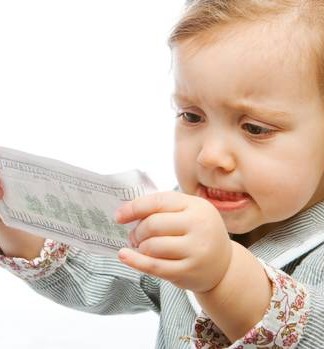It might seem like a strange or even unseemly idea to start talking to your kids about money at an early age. After all, one of the sweetest things about kids is their innocence about all worldly matters. Actually it’s far unseemlier to leave them in the dark about money. Money is one of the most widely reported causes for the problems of adults.
Money issues affect relationships, stress, freedom and opportunities as well as a host of other life aspects. Many problems can be solved with money and many can be created by not having enough.
By teaching kids about money early, you may be providing insurance against future financial problems. Richard Cayne of Meyer International advises that you teach your little ones about how to make money, spend it and use it to their advantage.
Much like dietary habits, if you instill healthy money habits in children at a young age, you will likely instill them for life.
Financial planning consultant Richard Cayne said, “I think that one of the most important things that people can do for their kids is to start talking to them about money at an early age. Where does it come from? How do they make it work for them instead of spending their whole life working for it? These are the lessons that are so important to teach,” he said.
Everyday Lessons for Young Kids
Richard Cayne believes in getting all kids thinking about money early. He suggests helping them to understand through lessons taught with a monetary allowance. Consider making them earn their allowance through performing chores or other “work.” Teach them about saving for a much-wanted toy or offer to hold their allowance for them for a few weeks or months and let it accrue “interest.”
Classes for Older Kids
Many secondary schools offer classes in money management or household accounting. These courses teach students how to balance a checkbook, how to use credit, what interest rates mean and similar subjects. If your kids are lucky enough to attend a school with these sort of offerings, encourage them to sign up.
If your kids graduate from school with these everyday skills and lessons, they will be miles ahead of many kids that know little about money except how to spend it.
Practical Experience for Older Kids
At home, if you have older kids, start to teach them about investments. Show them which stocks, bonds or funds you are buying and why. Perhaps earmark a sum for them and allow them to choose some funds or stocks and explain to you why they are choosing them.
If you can afford it, tell them that whatever profits they make, they can keep or you can place them in their college account.
Don’t be surprised if these rewards help you to create a savvy little investor!
For further information about teaching your kids about money and other investment topics, Richard Cayne and Meyer International can be reached at (+66) 02 611 2561















